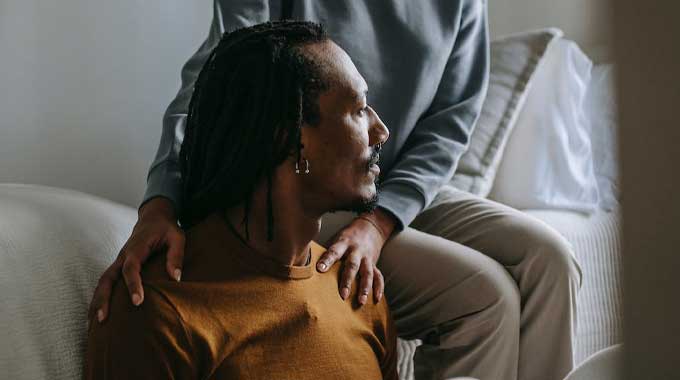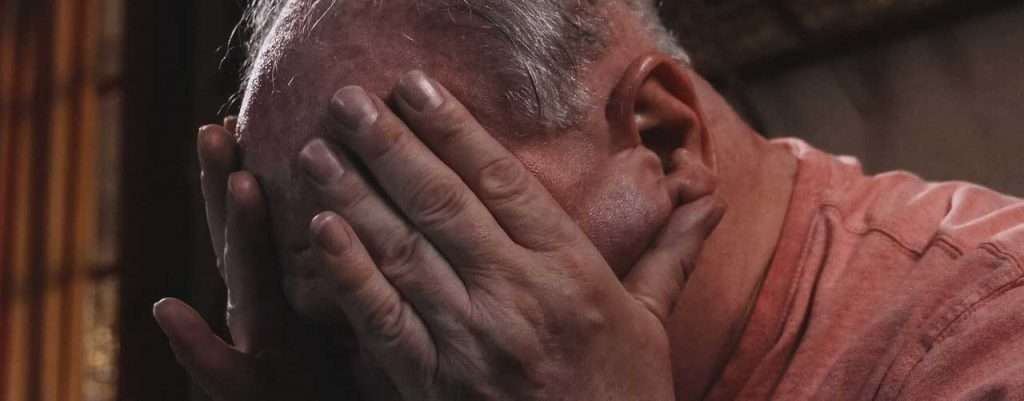Oxycodone is a prescription painkiller for moderate to severe pain.
You should only take oxycodone if it has been prescribed to you. Oxycodone is a powerful drug and must only be used as stated. Failure to do so could result in several health problems, including an oxycodone overdose. If in doubt, talk to a licensed medical professional.
Like all opioids, oxycodone is very addictive. Addiction can occur through misuse and abuse, even if the medication was prescribed to you and is being used for pain relief. Misuse can look like taking higher dosages than prescribed, leading to addiction, as can prolonged use. If oxycodone has not been prescribed to you, do not take it even if you require pain relief.
No one ever intends to develop an addiction, but it can happen. Once your body is addicted, it is tough to break free. This requires professional addiction treatment such as a detox.
Some people take oxycodone for its side effects, mainly a euphoric high or “rush.” This is drug abuse and incredibly dangerous. Opioid abuse can lead to an addiction known as opioid use disorder.
If someone if abusing oxycodone, it is essential to encourage them to get help. Acting fast can make all the difference. Knowing the signs and symptoms of oxycodone abuse will help you stay informed. Oxycodone abuse can cause adverse effects on an individual’s life and is never worth it.
If you are concerned about oxycodone abuse, talk to someone. You are not alone.
Find help: Addiction Treatment Orange County
What Is Oxycodone?
Oxycodone is a semi-synthetic painkiller in the opioid family designed to treat chronic pain such as cancer or bone pain. It is sometimes given the nickname “Oxy.” Brand names for oxycodone include Oxycontin and Roxicodone. You can only access oxycodone through a prescription.
All opioids are a class of drugs that derive from the opium plant. Other common opioids are morphine, codeine, and fentanyl.
Opioids are classed as Schedule II drugs because they have a high potential for abuse and addiction. Opioid addiction is also known as opioid use disorder and is relatively common. But it doesn’t have to be this way. When these prescription painkillers are used correctly, abuse and addiction are minimal.
Prolonged use of prescribed painkillers can lead to tolerance and physical dependence. Physical dependence is not necessarily an addiction, but consult your prescribing physician. Addiction is a brain disorder where you feel compelled to take substances despite adverse effects on your health and wellbeing. Physical dependence can lead to addiction.
If you develop an addiction to oxycodone or any other opioids, it is essential to seek advice immediately. Help is available at addiction treatment centers and rehab facilities. Alternatively, speak to a licensed medical professional. Even telling a friend or talking to a helpline can get you on the road to recovery.
You will probably know if you have an oxycodone abuse problem, even if you aren’t ready to admit it yourself or others. Knowing the signs and symptoms of abuse might be the wake-up call you need to seek professional treatment.
Physical Signs of Oxycodone Abuse
You might not recognize the signs of oxycodone abuse in yourself. You may even be in denial and hide signs from friends and family to avoid confrontation. The fact is, there is no safe level of substance abuse. There is always the risk of side effects, health problems, overdose, and addiction.
Both genetic and environmental factors make substance abuse more likely. Causes and risk factors include a family history of addiction, poverty, childhood trauma, and mental disorders. Many people turn to substance abuse as a coping mechanism for difficult emotions or unaddressed mood disorders.
Dealing with the reasons for your drug abuse is essential in getting and staying clean. In addiction treatment, you will go through these issues in settings such as group therapy.
Someone who is abusing oxycodone and is dependent on the drug will experience various physical signs and symptoms.
Physical symptoms of oxycodone abuse include:
- Low hygiene
- Poor self-care
- Sleep problems
- Dilated pupils
- Stomach problems
- Nausea
- Constipation
If you exhibit these signs of oxycodone abuse, you may have a physical dependence. This is known as addiction.
Psychological Symptoms of Oxycodone Abuse
Oxycodone abuse takes its toll on an individual both physically and psychologically.
A person’s behavior will change through abuse and subsequent addiction, usually for the worse. They might take steps to hide their addiction by isolating themselves or becoming secretive.
You might find a person with a substance use problem will steal money for their fix or steal oxycodone when they cannot obtain it through any more means. This can be frustrating and disappointing, but these acts of desperation as symptoms of addiction.
Psychological symptoms of Oxycodone abuse include:
- Mood swings such as becoming anxious, irritable, and paranoid
- Becoming secretive
- Losing interest in things you once found important
- Withdrawing from friends and family members
- Poor performance at school or work
- Risky behavior such as driving under the influence or unprotected sex
- An obsession over getting your next fix
- Going to extraordinary measures to get your fix, such as stealing money or drugs
- Wanting to stop taking drugs but being unable to
If you notice these behavioral symptoms in a friend or family member, they may have an oxycodone addiction. It is essential to approach them non-confrontational and encourage them to get professional help.
Signs of Oxycodone Addiction
If a person shows physical and psychological signs of oxycodone abuse, they likely have an addiction. Sometimes the oxycodone addiction signs can be hard to recognize even if they are right. One reason for this is people with a substance use disorder are sneaky and do not want to be found out.
In addition, if a person has a mental health disorder, this may mask any signs. People with addictions often have co-occurring disorders such as anxiety, depression, or bipolar disorder.
Some common signs of oxycodone addiction include:
- Taking oxycodone not prescribed to you
- Taking oxycodone “just in case” even if you don’t need it
- Prioritizing drug abuse over other things
- Withdrawal symptoms if a person stops taking Oxycodone for a short period
For further information, The Diagnostic and Statistical Manual of mental disorders list criteria for diagnosing opioid use disorder. However, this can only be done by a medical professional.
The sooner you seek treatment for substance abuse problems, the better your chance of successful long-term recovery.
Oxycodone Withdrawal Symptoms
If you have an oxycodone addiction, you must seek professional help for addiction treatment.
Addiction treatment begins with a detox that rids your body of all substance traces. You should undertake a detox in a specialized facility such as a rehab center. It is not recommended to detox without professional supervision as side effects can be very dangerous.
The length of your detox will depend on your health profile, plus the length and severity of your drug abuse. You may experience withdrawal symptoms, but these will soon pass. They are a sign that the detox is working and that oxycodone, and any other drugs, are leaving your body.
Oxycodone withdrawal symptoms include:
- Insomnia
- Muscle pain
- Headaches
- Stomach pain
- Diarrhea
- Nausea
- Vomiting
- Sweating
- Mood swings
- Depression
- Cravings
Withdrawal symptoms are temporary, but recovery can be forever.
Get Help Today
If you are concerned about Oxycodone abuse or addiction, please reach out to Cornerstone. We can help get you on the path to recovery and offer you a new existence. Take back control of your life today.






